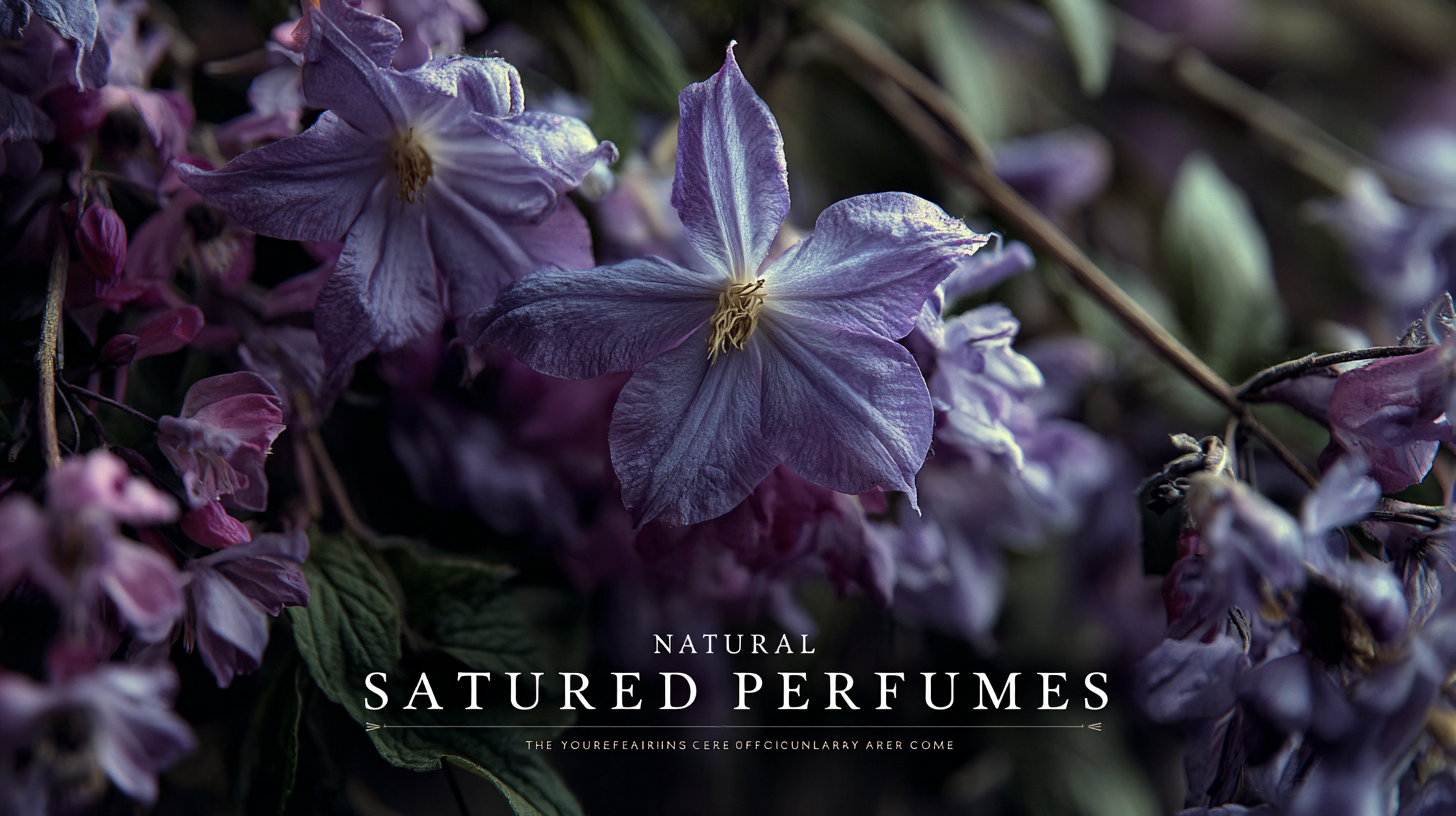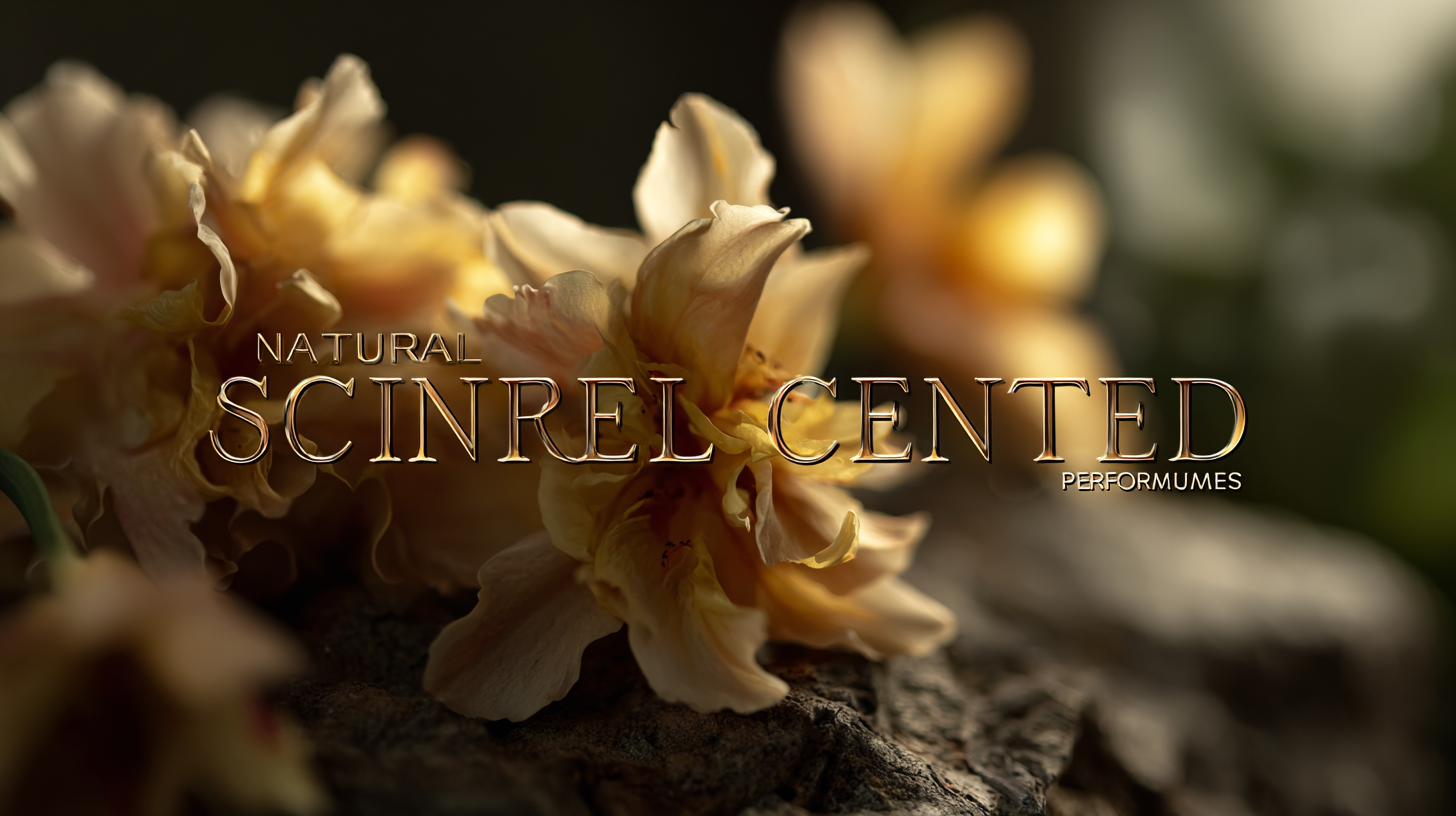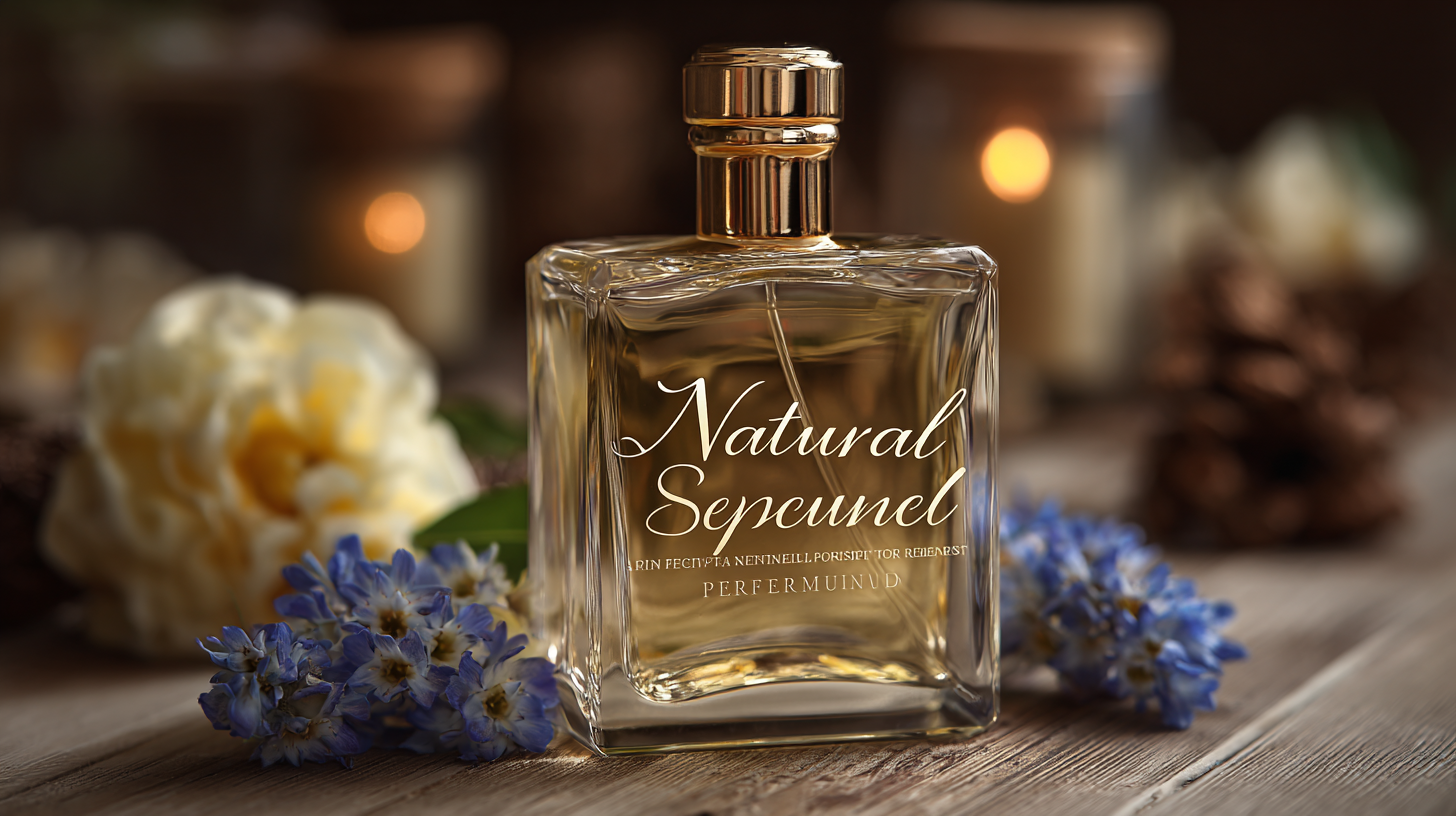
7 Tips for Choosing the Best Natural Scented Perfumes to Elevate Your Fragrance Game
In recent years, the demand for Natural Scented Perfumes has surged, reflecting a growing consumer preference for products that are not only fragrant but also sustainable and eco-friendly. According to a report by Grand View Research, the global market for natural fragrance is projected to reach USD 33.08 billion by 2026, growing at a compound annual growth rate (CAGR) of 6.3%. This increase signifies a shift in consumer consciousness towards choosing scents derived from natural sources, free from synthetic ingredients that can irritate the skin and harm the environment. As more individuals seek to elevate their fragrance game through these pure options, understanding how to choose the best Natural Scented Perfumes becomes crucial. In this blog, we will explore seven essential tips to help you navigate this fragrant landscape and make informed choices that align with your values and preferences.

Understanding the Benefits of Natural Fragrances Over Synthetic Options
When it comes to fragrances, the growing trend of natural scented perfumes has captivated the hearts of many fragrance enthusiasts. Unlike synthetic options, which are often laden with chemicals and artificial ingredients, natural perfumes draw from botanical sources, offering a myriad of benefits.
One of the most significant advantages is their lower risk of skin irritation and allergies. Many synthetic fragrances contain phthalates and parabens that can trigger negative reactions, whereas natural ingredients like essential oils are generally gentler on the skin.
Additionally, natural fragrances tend to have a more complex and multi-layered scent profile. They evolve beautifully over time, revealing different notes as they interact with your body chemistry. This dynamic nature sets them apart from synthetic perfumes, which often have a more linear scent that doesn’t change as much. Moreover, the use of natural ingredients often supports sustainable practices and ethical sourcing, allowing consumers to feel good about their choices. By choosing natural scented perfumes, you not only enhance your personal fragrance game but also contribute to a more eco-friendly and health-conscious approach to beauty.
Key Ingredients to Look for in Natural Scented Perfumes
When selecting the best natural scented perfumes, understanding key ingredients is crucial for elevating your fragrance game. First on your list should be essential oils derived from plants, flowers, and herbs. These oils not only provide rich and complex scents but also offer therapeutic benefits. For example, lavender oil is renowned for its calming properties, while citrus notes like bergamot can uplift your mood. Always check the perfume label for pure essential oils, as synthetic substitutes may lack the depth and character of natural fragrances.
Another important ingredient to consider is botanical extracts. Ingredients such as jasmine, sandalwood, and rose absolute impart a luxurious quality to perfumes. They create lasting impressions and contribute to the overall scent profile of the fragrance. Moreover, look for natural fixatives like resins or balsams that help to enhance the longevity of the scent without compromising on quality. Avoid perfumes with synthetic additives, as these can irritate the skin and detract from the natural essence you desire.
By focusing on these key components, you can find a fragrance that not only smells divine but also aligns with your values of sustainability and wellness.
How to Identify Your Signature Scent: Tips and Tricks
Identifying your signature scent can be an exciting journey, and it often starts with understanding the types of fragrances that resonate with your personality. To narrow down your choices, consider exploring different fragrance families such as floral, woody, or citrus. Spend time testing various natural scented perfumes, as each will evoke different emotions and memories. Remember, the right scent should not only smell pleasant but also enhance your unique identity.
When testing fragrances, take note of how they evolve over time. A perfume may smell different in the bottle compared to how it interacts with your skin chemistry. Apply the fragrance onto your wrist and give it time to develop, observing its top, middle, and base notes. This will help you determine which components you enjoy most, guiding you towards a scent that feels authentically “you.”
Another essential tip is to trust your instincts; don’t overlook the power of personal preference. Sometimes, the fragrances that evoke the strongest emotional response are the ones you gravitate towards naturally. Keep a journal to record your impressions and feelings associated with each scent, allowing you to curate a collection that truly represents your essence.

The Importance of Ethical Sourcing in Perfume Selection
When it comes to choosing the best natural scented perfumes, understanding the importance of ethical sourcing cannot be overstated. With the growing consumer demand for sustainable options, many brands are now focusing on responsible ingredient sourcing, emphasizing transparency in their supply chains. In 2022, the global market for sustainable fragrance was predicted to reach approximately $1.9 billion, growing at a significant rate as consumers become more environmentally conscious. This shift highlights the necessity for brands to adopt practices that not only prioritize the use of natural ingredients but also ensure fair wages and sustainable agricultural practices for the communities involved.
Moreover, choosing perfumes that align with your ethical values means looking beyond just the "natural" label. Notably, numerous perfume producers are re-evaluating their formulations and sourcing strategies to meet the increasing demand for "clean" fragrances that are free from harmful chemicals. Understanding that there is no legal definition of sustainability in fragrance can empower consumers to dig deeper into brands' claims. As shoppers educate themselves about the impact of their purchases, the fragrance industry is seeing an innovative transformation towards a more sustainable and ethical future, where consumer preferences shape production practices significantly.

Layering Techniques: Enhancing Your Fragrance with Natural Scents
When it comes to enhancing your fragrance game with natural scented perfumes, layering techniques can play a vital role. According to a recent report by the Fragrance Foundation, 60% of consumers are interested in exploring fragrance layering, as it allows for a personalized scent experience. By mixing different natural scents, you can create a unique fragrance profile that is not only aromatic but also reflects your personality.
Start with a base scent that you love, such as sandalwood or vanilla, which offers warmth and depth. Layer on complementary fragrances, such as citrus notes like bergamot or grapefruit, to add a refreshing burst. Research indicates that the olfactory senses are strongly tied to emotions, and a well-executed layering technique can transform your mood while making a statement. Remember to apply in layers: begin with body oil, followed by a matching perfume, and finish with a light spritz of ambient fragrance for a well-rounded experience. According to industry insights, layering can extend the longevity of your fragrance by as much as 30%, making it a worthwhile technique for maximizing both scent and satisfaction.
